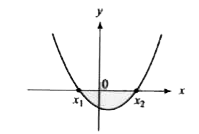Complete Solutions to Exercise (Concept-based single correct answer type questions) of chapter QUADRATIC EQUATIONS of Class 12 book with complete answers and questions
| Class 12 | MATHS |
| Chapter | QUADRATIC EQUATIONS |
| MCGROW HILL PUBLICATION | Exercise (Concept-based single correct answer type questions) |
| Number Of Questions | 20 |
| Academic Year | 2023-24 |
The number of real solutions of `x^(2) - 2x + 2 + |x - 1| = 0` is
View SolutionIf roots of `7x^(2) - 11 x + k = 0, k ne 0` are reciprocal of each other, then k is equal to
View SolutionIf `a + b ne 0` and the roots of `x^(2) - px + q = 0` differ by -1, then `p^(2) - 4q` equals :
View SolutionIf the equations `x^(2) - ax + b = 0 and x^(2) + bx - a = 0` have a common root, then
View SolutionIf both roots of the equation `x^2+x+a=0` exceeds 'a' then
View Solution[ The number of real solutions of x^(2)-4|x|-2=0 is [ (a) 1, (b) 2 (c) 3, (d) 4]]
View SolutionIf `alpha` and `beta` are the roots of the equation `x^2+px+(3p)/4=0` such that `|alpha-beta|=sqrt(10)` then p belongs to the set
View SolutionThe number of solutions of `sqrt(5 + x) + sqrt(x) = 2` is
View Solution[ Suppose a in R .The set of values of a for which the quadratic equation `x^(2)-2(a+1)x+a^(2)-4a+3=0` has two negative roots is [ (a) (-oo,-1), (b) (1,3) (c) (-oo,1)uu(3,oo), (d) phi]]
View SolutionSuppose `alpha gt 0, beta gt 0 and alpha + beta = pi //4` . If tan `alpha, tan beta` are roots of `x^(2) - ax + b = 0 `, then
View SolutionIf `b gt a`, then the equation `(x-a)(x-b)-1=0`, has
View SolutionIf the quadratic equation `x^(2) + 2 (k + 1) x + 9k - 5 = 0 ` has exactly one positive root, then k lies in the set
View SolutionIf `k in R` lies between the roots of `ax^(2) + 2b x + c =0` , then
View Solution[ (d) ak^(2)+2bk+cgt0 (4) If both the roots of the quadratic equation x^(2)-4ax+2a^(2)-3a+5 are less than 2, then a lies in the set (a) (9/2,oo) (b) (-oo,9/2) (c) (-1,oo) (d) (2,oo)]
View SolutionShows graph of `y= ax^(2) + bx + c` . Then which one of the following is not true.

View SolutionGreatest value of the expression `(8)/( 9x^(2) - 6x + 5)` is
View SolutionIf `a, b,c in {1, 2, 3, 4}` the number of quadratic equation of the form `ax^(2) + bx + c = 0` which have non-real complex roots is :
View SolutionThe number of real roots of the equation `(x - 1)^(2) + (x -2)^(2) + (x - 3)^(2) = 0 ` is
View SolutionIf `0 lt a lt b lt c and ` the roots `alpha, beta` of the equation `ax ^(2)+bx+c=0` are imaginary, then
View SolutionIf `a gt 0` and both the roots of `ax^(2) + bx + c = 0` are more than 1, then
View Solution
Exercise (Concept-based single correct answer type questions) questions and complete solutions for chapter QUADRATIC EQUATIONS of MCGROW HILL EDUCATION MATHS (HINGLISH) of Class 12
All Exercises from MCGROW HILL PUBLICATION Class 12 MATHS QUADRATIC EQUATIONS
- Exercise ( Level 1 (single correct answer type questions))
- Exercise ( Level 2 (single correct answer type questions))
- Exercise ( Level 2 (Numerical answer type questions))
- Exercise (Concept-based single correct answer type questions)
- Questions from Previous Years. AIEEE/JEE main papers
- Questions from previous Years. B - architecture entrance examination papers
- Solved Examples (Level 1 ( Single Correct Answer Type Questions)
- Solved Examples (Level 2 (Straight Objective Type Questions))
- Solved Examples (Numerical Answer Type Questions)
- Solved Examples (Concept - based (Single Correct Answer Type Questions ))